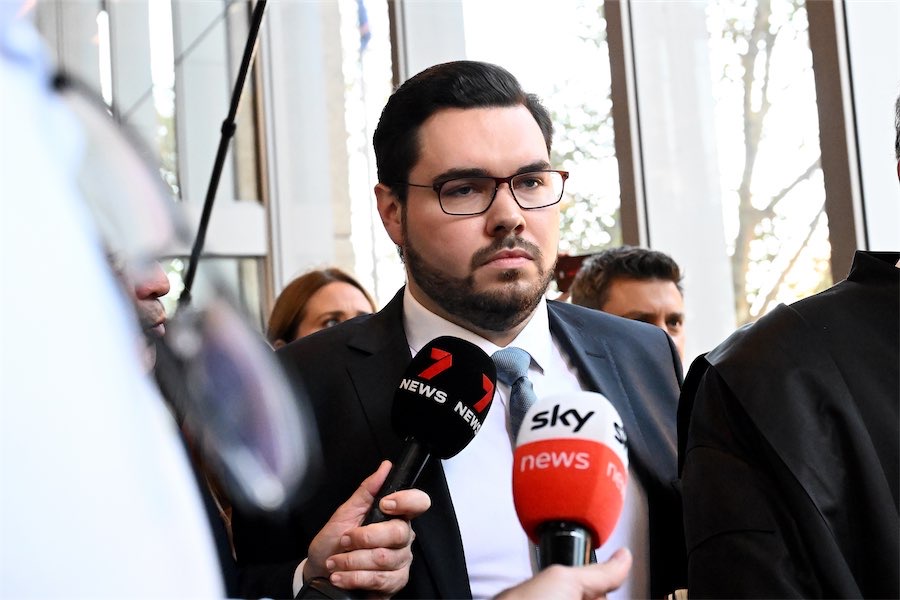
“Volunteers might be just grist to the mill: here today and expelled tomorrow for good, bad or no reason,” writes legal columnist HUGH SELBY.
PEOPLE believe that “fairness” is a right. It isn’t.

Following an unfair experience they believe there is a legal remedy. There often isn’t.
They think “natural justice” is a catch-all means to right wrongs. It rarely is.
Here is an example, from an early December letter to “CityNews”. Writer Leon Arundell claimed: “In February, I was told that, because I had written a ‘CityNews’ article [mainly about transit lanes], I had been expelled from the [ACT] Conservation Council’s Transport Working Group and I was no longer permitted to contact any member of any Conservation Council working group, or to enter the council’s premises.
“Contrary to natural justice, that decision had been made without informing me that it was being considered.
“I asked to resolve the dispute. All I was offered was a confidential meeting with a single board member, who was not authorised even to make recommendations to the board.
“I have had no response to my request for an appeal to be decided, in accordance with natural justice, by someone independent of the original decision-maker.”
His earlier article (the one that he claims was the cause of his expulsion) included the following: “We can convert an existing traffic lane to a T3 or T2 transit lane for the cost of a few road signs.
“Population growth is the biggest cause of increases in Canberra’s transport emissions and traffic congestion. The second biggest cause is car passengers becoming car drivers.
“Transit lanes encourage car drivers to become car passengers. Neither bus rapid transit nor light rail do that.
“Stage one of light rail failed to reduce the proportion of Canberra commuters who drive cars.
“The proportion of Canberra commuters who travelled as car passengers fell from 9 per cent in 2011 to 7.3 per cent in 2016, and to 6.7 per cent in 2021. The proportion who drove cars increased from 73 per cent in 2011 to 74 per cent in 2016, and to 75 per cent in 2021.”
How, if at all, the contents of that article led the Council to expel him is unknown. It is also irrelevant.
What matters is whether Mr Arundell had any legal basis to contest his expulsion.
To find out what, if any, rights of redress he had we must go to the council’s constitution (updated late this year conservationcouncil.org.au/about-us/ ).
In the current constitution there is no mention of the working groups, nor of the volunteers who serve on them.
The council’s key members are organisations, not individuals. Nevertheless, at its discretion the council can choose to make individuals “associate members”. However, such individuals have “no voting or other rights” of any kind.
By contrast there is a mandated dispute resolution process for member organisations. The “natural justice” process matches the usual requirements of “fair process”, such as no bias by those deciding the dispute, the chance to be heard, as quickly as is reasonable, and the right to seek a review by an outside arbitrator of an adverse decision.
Mr Arundell thought this applied to him. It doesn’t.
There are many in our community who volunteer their time and skills. The organisations must have adequate insurance cover for untoward events. Volunteers may also have protections under the Privacy Act.
Our Civil Law (Wrongs Act) provides: “A volunteer does not incur personal civil liability for an act done or omission made honestly and without recklessness while carrying out community work for a community organisation on a voluntary basis”. That’s a comfort.
But otherwise volunteers might be just grist to the mill: here today and expelled tomorrow for good, bad or no reason.
The ACT’s Emergency Services Agency has a “Volunteer’s Charter“. Its components are laudable. It is worth reading.
Whatever the rights and wrongs in Mr Arundell’s expulsion (that may go to the personalities of one or more of those involved or deep-felt policy differences or some other factor) it’s not a good look to “accept” volunteer effort and then throw the volunteer out, trash like.
It could and should have been better handled. A lawful act flowing from the constitution’s express denial of rights to individuals can be delivered in various ways, ranging from the arrogant brutal to the charming farewell.
The notion that volunteers are entitled to a ‘grievance procedure’ is reasonable (and mentioned by those who champion the use of volunteers) but it’s not a legal requirement.
Volunteers are vital to our community. They are drawn from those with a will to serve, be they young or old. Nevertheless, disputes are inevitable.
We do not have a Volunteer’s Act that sets out the rights and obligations of those who use volunteers and those who volunteer.
Rather than burdening many small organisations with having to establish a grievance procedure, such an act could give our tribunal, the ACAT, the jurisdiction to decide disputes. Achieving fairness for all volunteers would have legs.
It’s time to get this right – too late for Mr Arundell – but a fair thing for today’s volunteers.
Who can be trusted?
In a world of spin and confusion, there’s never been a more important time to support independent journalism in Canberra.
If you trust our work online and want to enforce the power of independent voices, I invite you to make a small contribution.
Every dollar of support is invested back into our journalism to help keep citynews.com.au strong and free.
Thank you,
Ian Meikle, editor





Leave a Reply